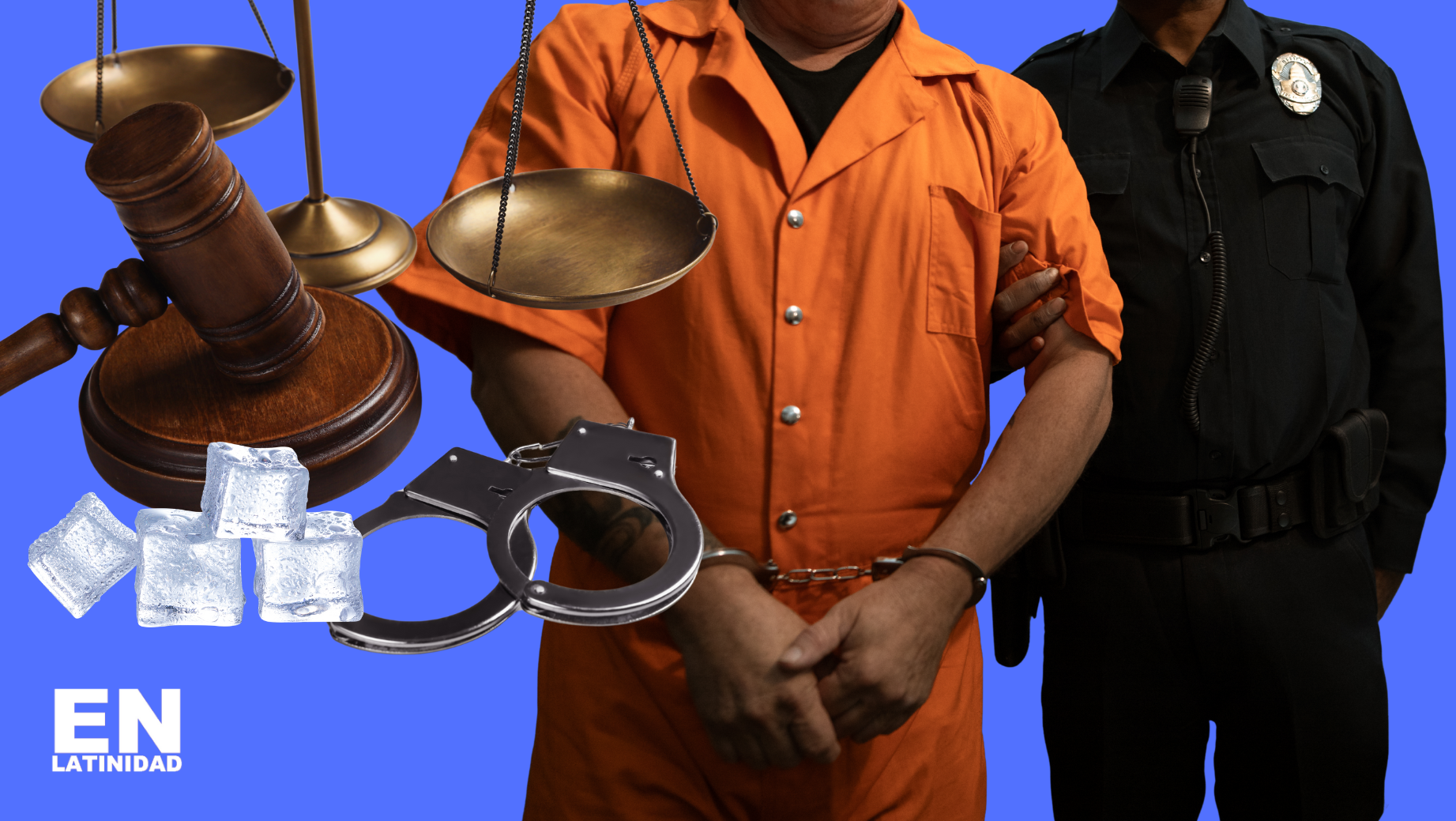Why Latinos Must Rethink the Word “Criminal” to Challenge ICE Raids and the Prison Industrial Complex
American Latinos have been grappling with a deeply painful and urgent question in the wake of recent inhumane ICE raids: Why are “good people,” hardworking families, being snatched away like criminals? I’ve seen this conversation unfold over and over—friends, neighbors, activists, even those new to immigrant justice work ask, “But they’re not criminals. Why are they being treated like this?” It’s a question rooted in both compassion and confusion, and it forces us to rethink the language we use, especially around the word “criminal.”
This word, “criminal,” carries immense weight in our society. It’s often used as a litmus test to determine who deserves sympathy and who doesn’t. We tend to humanize those we see as innocent or “law-abiding,” and dehumanize those branded as criminals. But the reality is far more complex—and more insidious—than this simple binary allows.
For far too long, many Latinos have regarded criminality and mass incarceration as “not their problem,” distancing themselves from the injustices that visibly affect African Americans or Black communities. This false sense of separation—rooted in anti-Blackness and the desire to appear “different” or more “deserving”—has allowed harmful systems like the prison industrial complex and immigration enforcement to flourish unchecked. But this othering is not only superficial and harmful; it’s also shortsighted. These same systems disproportionately target Latinos too, especially those who are poor, indigenous, undocumented, or visibly Afro-Latino. By failing to stand in solidarity with Black communities or confronting anti-Blackness within our own, Latinos risk reinforcing the very structures that criminalize us as well. The idea that proximity to whiteness or “good immigrant” status will shield us is not only false—it’s dangerous.
The painful irony is that tying human worth to “criminality” only empowers systems designed to profit off of our pain and suffering. The prison industrial complex, famously dissected in Ava DuVernay’s Netflix documentary 13th, reveals how incarceration is not just about justice but about control and profit. ICE detention centers operate on the same logic, a horrifying revenue stream that thrives on detaining and exploiting immigrants, many of whom have committed no crime beyond crossing a border.
In our communities, this fixation on who is “criminal” and who is “innocent” plays into a dangerous narrative. We highlight the “good” immigrants—the hardworking mother, the entrepreneur, the student—and ask, “Why are they being targeted?” Meanwhile, we risk erasing or ignoring the fact that human rights and dignity should not depend on such distinctions at all.
We must ask ourselves: Should someone’s right to live without fear, to be free from violence and separation, hinge on whether they have a criminal record? Should being labeled “criminal” justify family separations, raids, detention, and deportation? The answer is a resounding no.
Humanization cannot be conditional. When we make it conditional—based on criminal records, on immigration status, on anything—we inadvertently uphold the very systems that cause harm. The dehumanization of migrants serves to justify policies and practices that tear families apart and terrorize communities. It’s a cruel calculus that sacrifices the humanity of millions for profit and political gain.
Moreover, the label “criminal” is itself deeply flawed in this context. Immigration violations—like overstaying a visa or entering without documentation—are civil offenses, not criminal ones. Yet, ICE and the broader immigration enforcement system have blurred these lines to treat migrants as criminals, criminalizing what are often acts of survival and necessity.
Michelle Alexander’s groundbreaking book The New Jim Crow exposes how the U.S. criminal justice system functions as a modern system of racial control, disproportionately targeting Black and Brown communities through mass incarceration. Alexander argues that policies like the War on Drugs and tough-on-crime laws have created a racial caste system, stripping millions of their rights and opportunities long after their sentences end. This work is essential for understanding how the prison industrial complex operates and provides critical context for discussions about immigration enforcement, detention centers, and the criminalization of marginalized communities.
In many Latino communities, there is a generational trauma tied to policing and criminalization. The prison industrial complex disproportionately targets Black and Brown bodies, a legacy born from systemic racism and reinforced by policies that label entire communities as “criminal” or “dangerous.” The cycle continues with immigration enforcement, where these same prejudices are wielded to justify raids and detentions.
It is essential to recognize that human beings are more than their labels or the worst mistakes they may have made. Our dignity cannot be stripped away by a system that benefits from our dehumanization.
What if, instead of asking, “Are they criminals?” we asked, “Are they human?” What if our collective humanity became the standard by which we judge the worth of each person, rather than arbitrary legal or social definitions?
This shift in perspective is not just philosophical—it has real implications for policy and activism. When we reject the binary of criminal/innocent, we open the door to more just, compassionate immigration reform. We support abolishing detention centers and prisons that profit off human suffering. We invest in community-led solutions that uphold dignity and human rights.
This is the moment for Latinos to lead this rethinking. As a community deeply affected by immigration enforcement and the prison industrial complex, our voices carry the power to reshape narratives and policies. We can challenge the reductive language of criminality and demand recognition of the full humanity of every person.
To do this, we must also confront how our own fears and biases sometimes echo these harmful narratives. It’s uncomfortable to admit, but even within Latino spaces, there is often a tendency to distance ourselves from those labeled “criminals,” to separate “deserving” from “undeserving” immigrants. This division only weakens our collective power.
Latino solidarity means standing up for all of our people—those with clean records and those with complicated pasts, those documented and undocumented, those celebrated and those marginalized. Our liberation is bound together.
In the end, rejecting the simplistic and damaging notion of “criminal” as a measure of worth is an act of radical humanity. It is a refusal to let oppressive systems dictate who deserves dignity. It is a call to see each other fully, with compassion and justice.
As Ava DuVernay’s 13th reminds us, the prison industrial complex—and by extension, the immigration detention machine—is not about justice. It’s about profit, control, and the continued marginalization of Black and Brown bodies. Our resistance must be just as systemic and bold.
Latinos have the opportunity—and the responsibility—to rethink “criminality” and reclaim the narrative. To say loudly and clearly: every person deserves respect, protection, and humanity, regardless of the label the system tries to impose.
We can no longer afford to let the word “criminal” define who gets to live free, who is worthy of love, and who belongs in our communities. It’s time to dismantle these harmful distinctions and build a world where humanity is unconditional.





Leave a Reply
You must be logged in to post a comment.